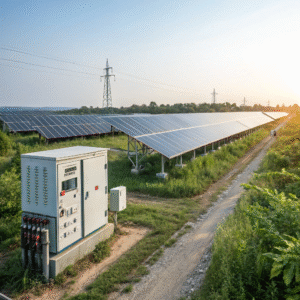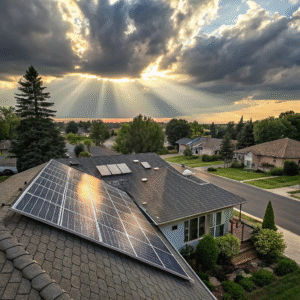How to get the maximum solar power?
by
How to get the maximum solar power?
Solar panels are a great investment, but are you getting the most out of them? Many solar system owners don't realize they could be generating significantly more power with some simple optimizations.
To maximize solar power output, ensure proper panel orientation (south-facing in northern hemisphere), optimal tilt angle (equal to your latitude), regular cleaning, and use of micro-inverters or power optimizers. These factors can increase energy production by 20-40%.
Getting the most from your solar system requires understanding both equipment choices and maintenance practices. Let's explore the key strategies to boost your solar power generation.
Is it better to use electricity during the day with solar panels?
You've installed solar panels but wonder when to run appliances for maximum benefit. Timing your energy use can significantly impact your savings and system efficiency.
Yes, using electricity during daylight hours when solar panels are producing maximizes self-consumption and reduces reliance on the grid or battery storage. This approach offers several advantages:
- Directly uses the solar energy being produced
- Minimizes energy losses from storage
- Takes advantage of net metering policies (where available)
- Reduces strain on battery systems
Optimizing daytime energy use
- Load shifting:
- Schedule high-energy appliances (washers, dryers, dishwashers) for midday
- Use timers or smart home systems to automate this process
- Energy monitoring:
- Track your solar production in real-time
- Adjust usage patterns based on generation
-
Seasonal adjustments: Season Optimal Usage Window Notes Summer 10AM-4PM Longer daylight hours Winter 11AM-3PM Shorter production window - Smart devices:
- Smart thermostats can precool/preheat during peak production
- EV charging can be scheduled for maximum solar utilization
By aligning your consumption with production patterns, you can significantly increase the value you get from your solar investment.Should I leave my solar panels on all the time?
Solar panel systems are designed for continuous operation, but some owners wonder if turning them off occasionally could be beneficial.
Solar panels should remain operational at all times when conditions allow, as they automatically adjust to sunlight availability and require no manual intervention. Here's why continuous operation is ideal:
- Load shifting:
- Systems are designed for 24/7 operation
- Inverters manage power flow automatically
- Shutting down can cause unnecessary wear on components
- You'll miss out on potential energy production!
System operation considerations
- Automatic functions:
- Panels stop producing when there's insufficient light
- Inverters enter standby mode at night
- Maintenance periods:
- Only disconnect for repairs or maintenance
- Follow manufacturer guidelines for shutdown procedures
- Safety features:
- Built-in protections against overproduction
- Automatic voltage regulation
- Monitoring benefits:
- Continuous operation allows full performance tracking
- Helps identify issues quickly
The only exceptions would be during extended absences (if recommended by your installer) or when performing system maintenance. Otherwise, keeping your system active ensures maximum energy harvest.Do solar panels need a lot of maintenance?
Many potential solar adopters worry about high maintenance requirements, but modern solar systems are surprisingly low-maintenance.
Solar panels require minimal maintenance - primarily occasional cleaning and annual inspections - making them one of the most hassle-free home energy systems. The key maintenance tasks include:
- Automatic functions:
- Visual inspections every 6 months
- Cleaning 2-4 times per year (more in dusty areas)
- Monitoring system performance
- Checking for shading issues
![Person cleaning solar panels]Maintenance schedule and tasks
- Cleaning:
- Frequency depends on local conditions
- Use soft brush and mild detergent if needed
- Avoid abrasive materials that could scratch surfaces
- Inspections:
- Check for physical damage or corrosion
- Verify all connections are secure
- Examine mounting hardware
- Performance monitoring:
- Compare output to expected levels
- Investigate significant drops in production
-
Professional servicing: Task Frequency Notes Electrical check Every 3-5 years Licensed electrician Roof inspection Every 2 years Especially for roof-mounted systems Inverter check As needed When performance issues occur With proper installation and basic care, solar panels can operate efficiently for 25+ years with minimal intervention. The small amount of required maintenance is far outweighed by the energy savings and environmental benefits.
Conclusion
Maximizing solar power output involves proper system design, strategic energy use, continuous operation, and simple maintenance. By implementing these practices, you can typically increase your solar energy production by 20-40%, significantly improving your return on investment while reducing your environmental footprint.
- Cleaning:



